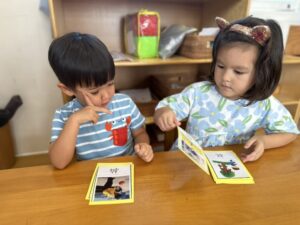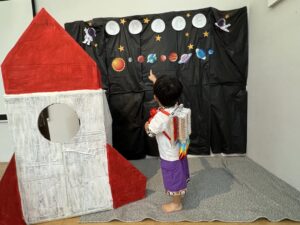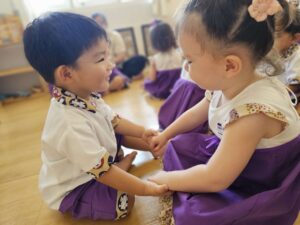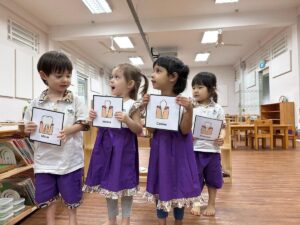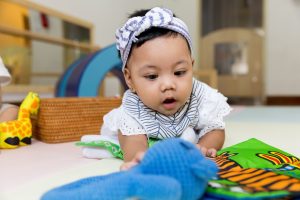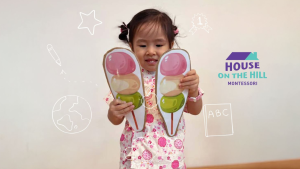Entering primary school for pre-schoolers is stepping into another phase of life. There are many big changes, for example, the school environment, new friends and teachers.
At House on the Hill, we believe that the transition to the primary school experience can be injected with fun! Towards the end of the school year, we start getting our Kindergarten (K2) children ready for the next milestone in their academic journey early, to help them to develop greater confidence and better social skills as they make the transition into formal schooling.
4 Beautiful Locations Islandwide
Our Montessori curriculum builds foundational academic, social and emotional skills that will benefit children even in the long term.
For our K2 children, we pay special attention to ensuring that they are exceptionally well-prepared for the move to ‘Big School’ with special activities just for them and work with their parents to address individual concerns.
Kindergarten 2: Classroom Preparatory
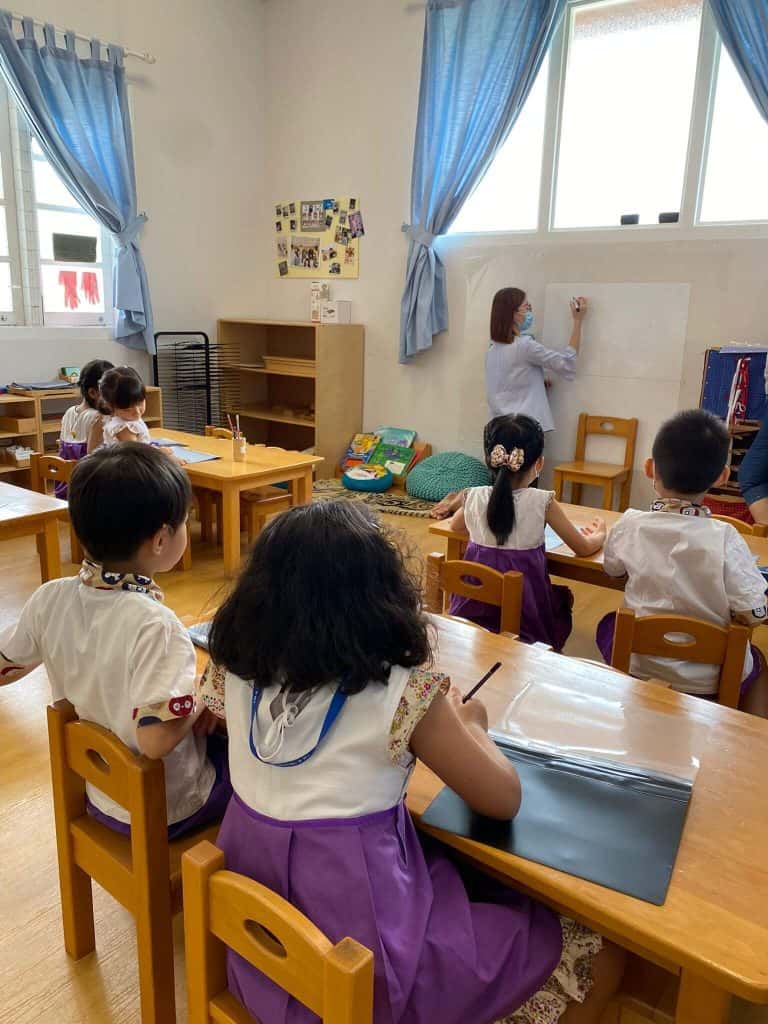
Each day, between September to November, our Kindergarten 2 children come together for a period of lesson in their Primary 1 preparatory classroom. They experience classroom style seating in small groups while group lessons are being conducted, and work on projects or worksheet tasks together.
Independence and Responsibility
During the children’s pre-school years, we have always emphasised independence and responsibility in their own tasks.
At school, in addition to the daily routines of taking care of themselves and their personal items, packing their own bags and more, we also introduce little note tasks for the children to write down and be responsible in relaying the message to their peers.
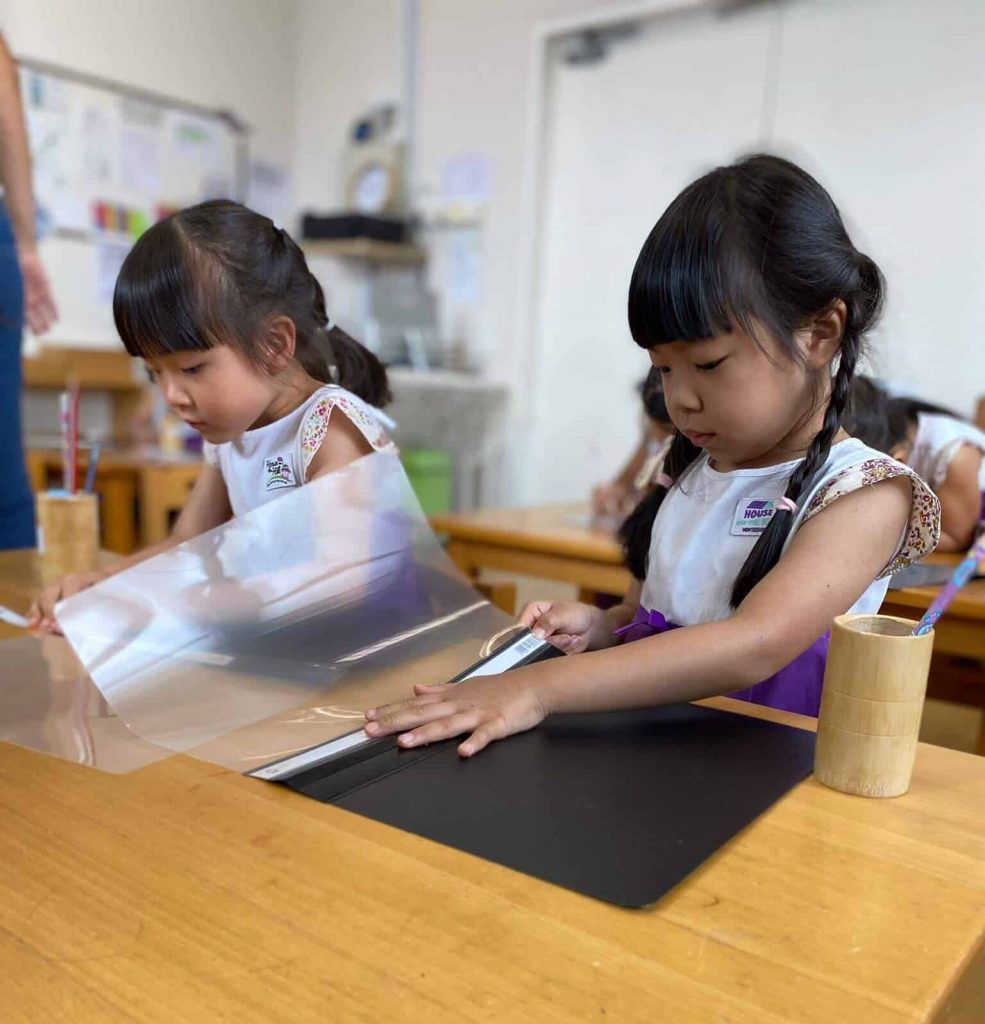
We provide opportunities for the children to learn responsibility.
They will be tasked with simple tasks such as helping other children refill their bottles, laying the lunch mat or rearranging the Montessori materials. They even learn basic organisation skills, such as filing their own work!
At home, we encourage parents to recognise the child’s effort. Revise or work with them on the tasks the teachers have assigned. Organisational skills at home should also be emphasised as they start to form the good habits of packing their own bags and think through the items that will be needed for the next school day.
Concept of Money
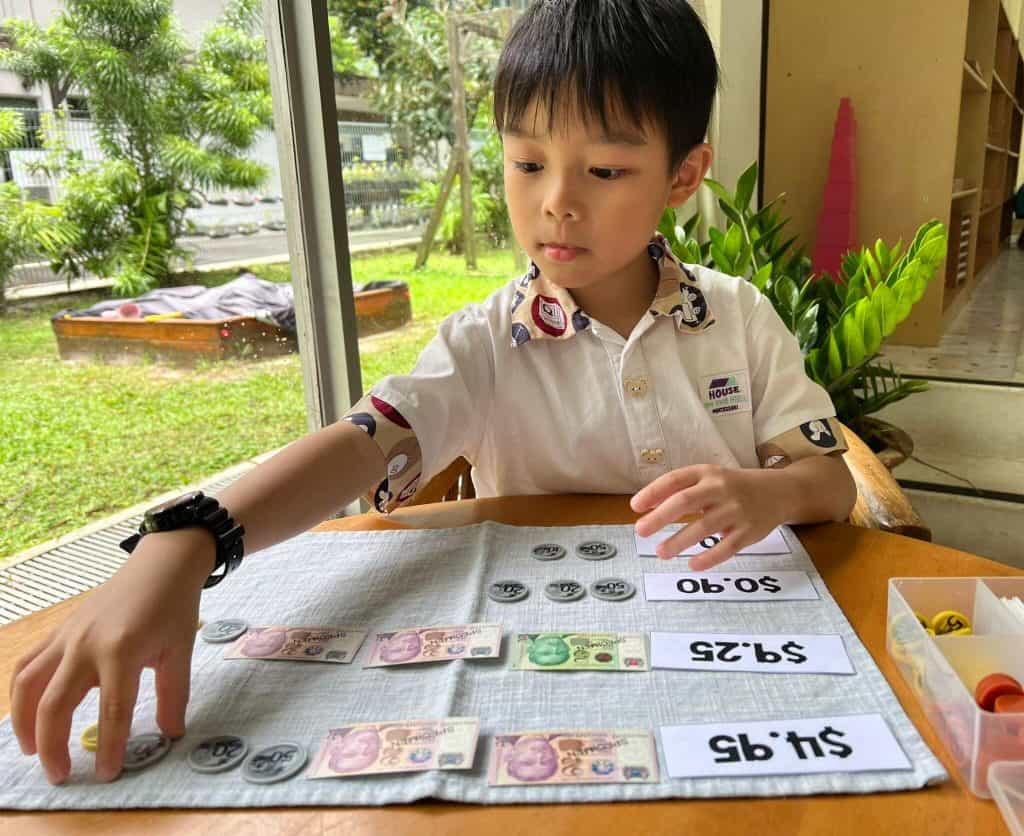
A pivotal part of growing up is learning how to handle and manage money.
In school, the children will have the opportunity to use money (in coins and dollars) to learn counting skills as well as money changing. We work on having the children experience practical use of money. In preparation for situations such as recess time in primary school, they are asked to “purchase” their snacks and lunch in school.
At home, we recommend that parents provide opportunities for their child to start buying food on their own.
For example, when they are buying food in a food court or are paying for items at the supermarket. Start introducing the concept of buying the essentials and saving the rest of the money. This will help them to start understanding how to manage their own pocket money in the future.
Concept of Time
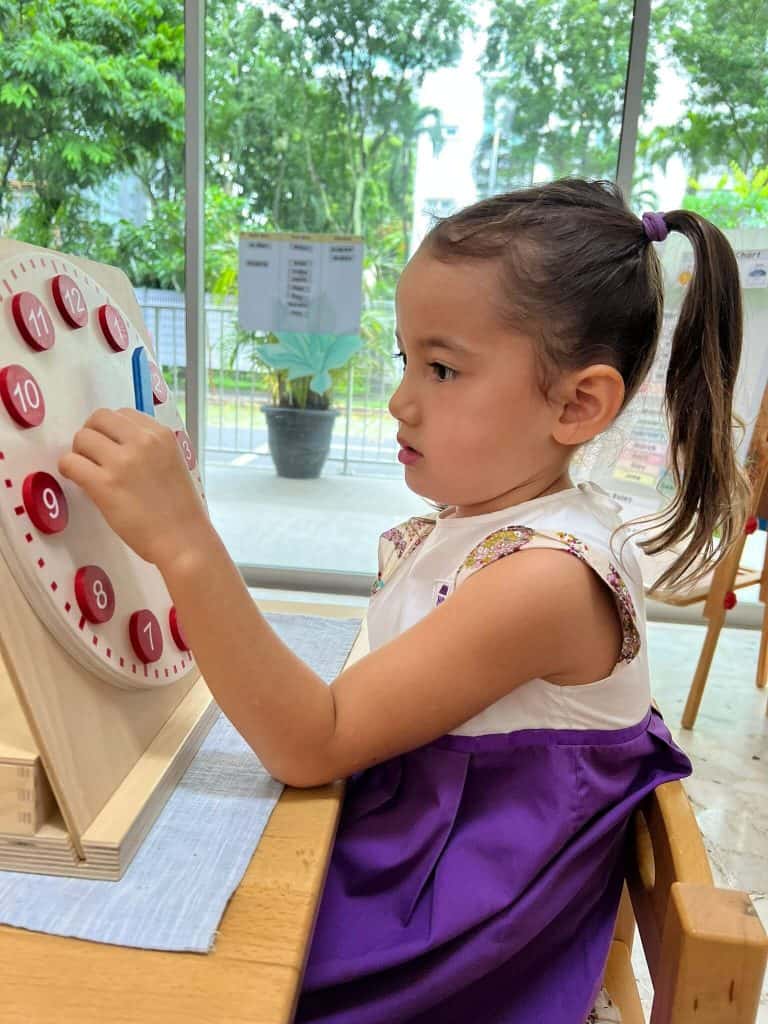
Understanding the concept of time is an important skill for all children to know. It helps them to develop the ability to plan, schedule, budget time and prioritise. We build on their strong Montessori foundation in numbers and counting.
Through routine tasks and time schedule, the K2s learn to complete certain tasks with a certain time frame. They have had opportunities to learn both analog and digital concept of telling time. They know the schedule in school and are able to tell the routines of each day and time by looking at the calendar and clock.
At home, we advise parents to set routines by getting their child used to setting their own alarm clock for morning wake-up time, especially on school days.
Remind them to get sufficient sleep and rest to get used to waking up early to get to school on time. Plan time for a regular schedule to fix meal times, craft time, work time, rest, and play time. Provide the child with a watch that they can learn to use it to remind of any change of schedule.
Spelling Lists
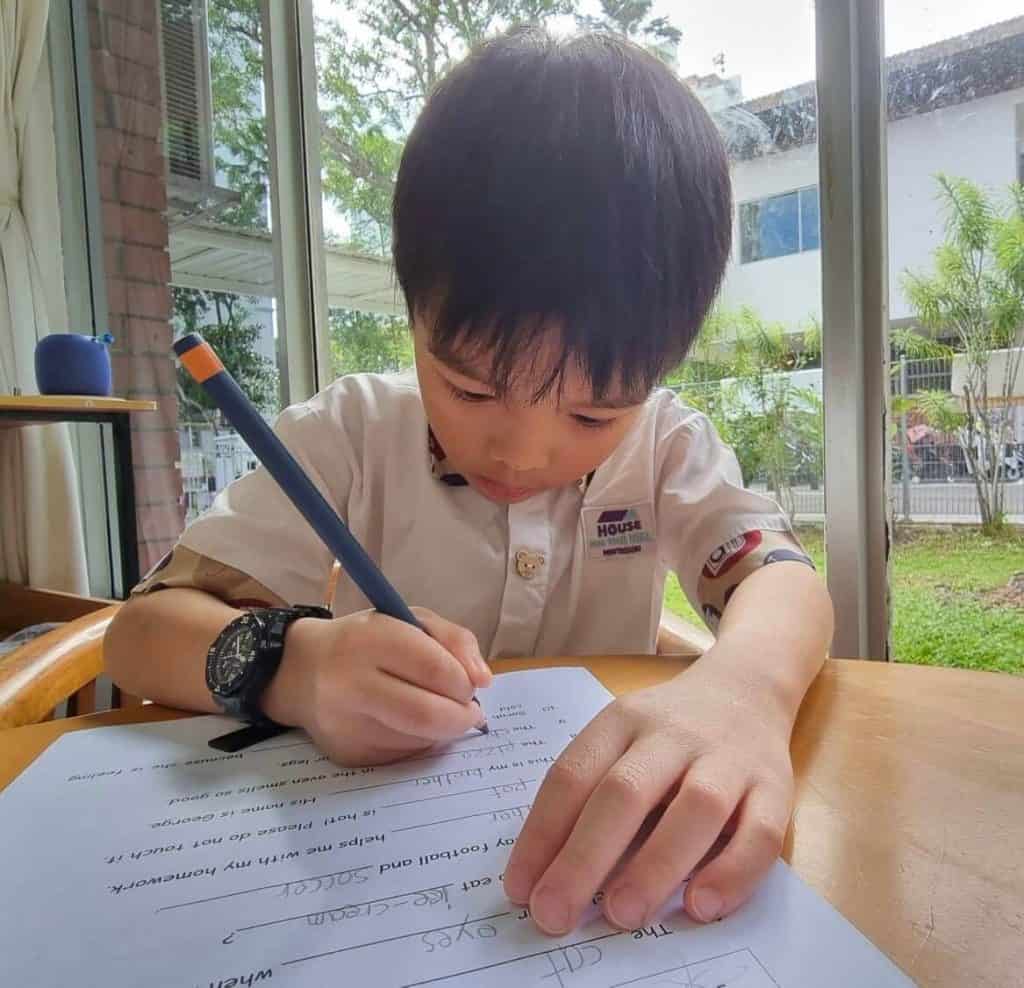
Our students have had vigorous practice for this moment in their lives, having experienced an “explosion” into reading and writing, as described by Dr. Maria Montessori.
Exposure to phonics and hands-on materials have empowered our children with the tools and confidence to master literacy. Now as they prepare to leave us for Primary school, we add on another layer by simulating a spelling test weekly. We introduce spelling words for them to learn, experience and get used to how this will be conducted in Primary 1.
At home, we ask parents to encourage their child to learn the words together with them. Spelling is a visuo-motor skill.
This means that they can ask their child to look at the words, see the patterns of the words and practise writing them out. Some of the words can be sounded out using the phonemic patterns that the child has learnt, but some of the longer words have to be learnt through grouping the letters through syllable breakdown.
For example, the word table is broken down to ta / ble. Provide opportunities to write in different ways as well as making meaning of the spelling words by making sentences out of the words.
Mandarin Spelling Lists (听写) and Han Yu Pin Yin (汉语拼音)
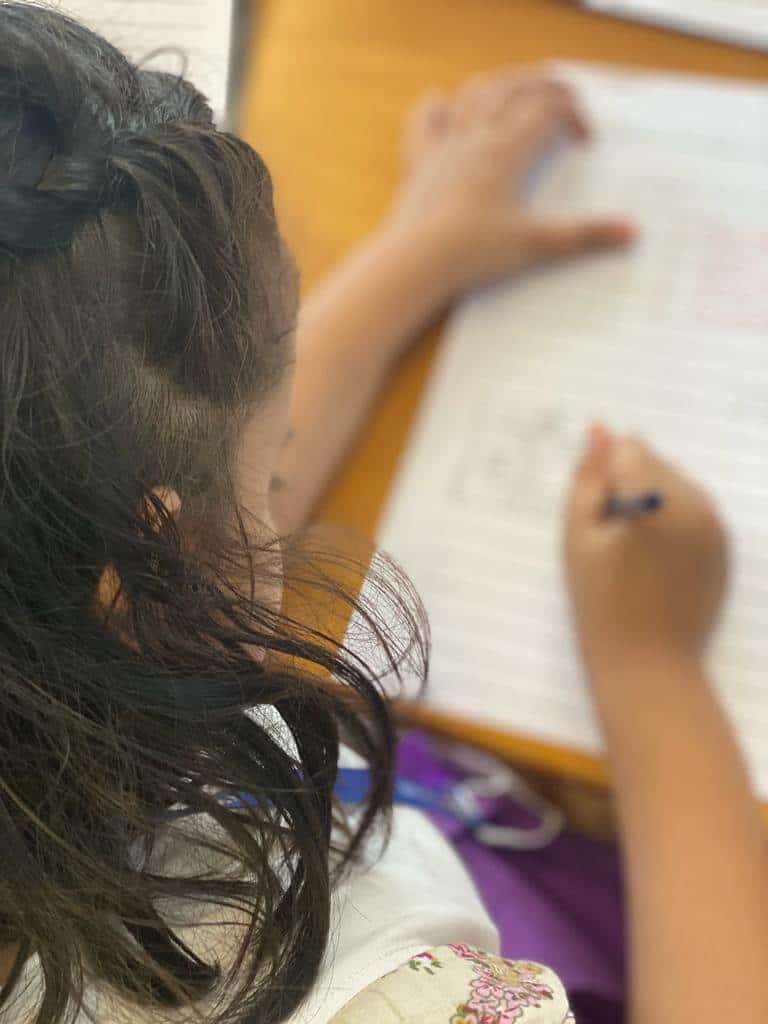
Similarly, our children have had regular exposure to Mandarin. Through a robust curriculum, they have developed a deep foundation in the language. We now begin to introduce Mandarin Spelling Lists 听写 as well as Han Yu Pin Yin 汉语拼音 lists that are tested weekly to the K2s.
Again, parents are advised to encourage their child to learn the Chinese Character words at home with them. Practice makes perfect!
Body Safety Conversations
We have conversations about Body Safety with the K2s. Body safety skills are part of the essential life skills that young children need to pick up as it helps them develop a healthy respect for their bodies (and name their private body parts in proper term), differentiate between good and bad touches, and to tell a trusted adult if someone behaves inappropriately towards them. Children must know that they have the right to say “no”!
Transition to Primary/Grade School Project
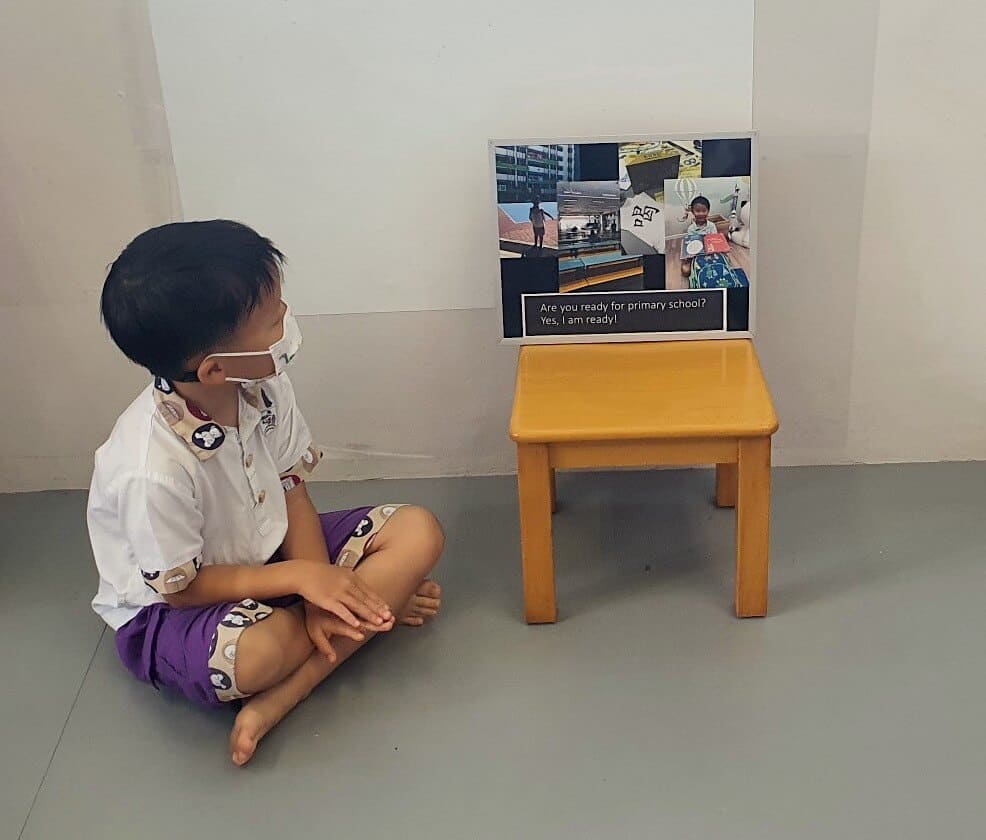
To further prepare the K2 children, we ask parents to work on a little project with their child about their transition to Primary school.
Every year, our parents create the most informative picture collage that the children present during show and tell. These usually include pictures of the child visiting their new school or buying their uniforms and textbooks. This project helps adds to the child’s sense of excitement about embarking on their new adventure!
Other tips for easing the transition:
- Parents should share their fun experiences about their own primary school journey, such as making new friends, borrowing books from their library or even ordering food at the canteen. This will help them to get excited about embarking on this new phase of life.
- Parents should address their child’s concerns and thoughts about going to a ‘big school’. Fostering open communication with your child is crucial as it will help them cope better with the worries or thoughts on their mind about the upcoming primary school journey. Start by getting your child to share with you about their day in school, lend them a listening ear and comfort them as they open up about their feelings. This will help to set a foundation of surety that there is parental support regardless of the situation.
- Like flying a kite, it is about trying to know when to rein in the kite in the midst of changing winds, and when to let out the line for the kite to fly higher. As parents, it is a judgement call in deciding when to step in to help address a challenge that could potentially overwhelm them or when to seize an opportunity such as teachable moments for children to learn and develop important competencies and skills like resilience, independence and problem-solving- all critical tools that the children will need for the rest of their lives.
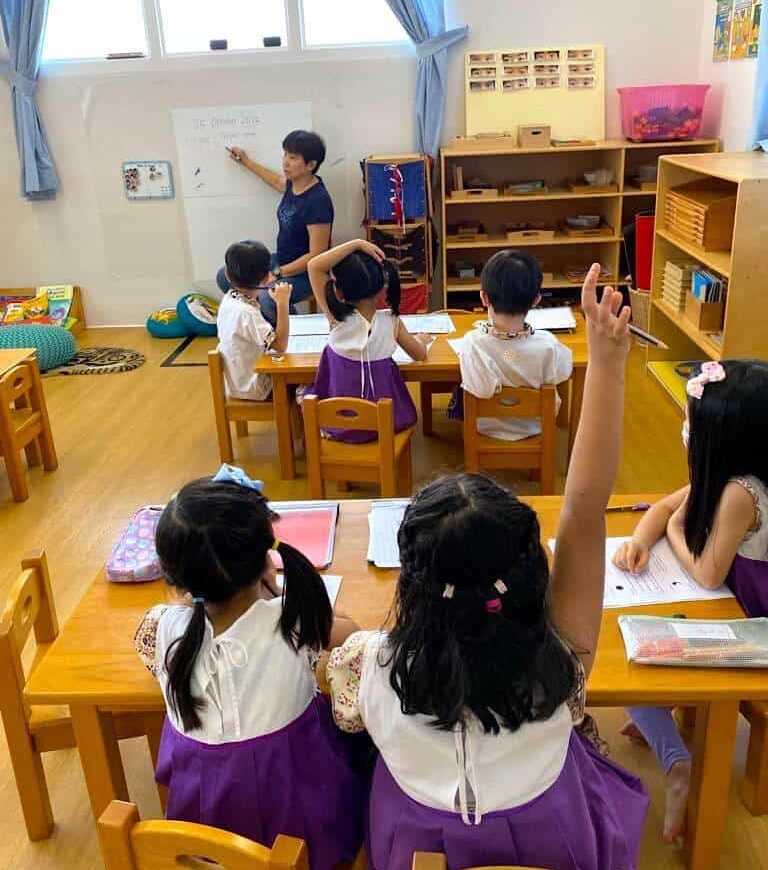
The move to a ‘big school’ is one of many first big moments for a child.
As excited as we are for them, we also know that good preparation is key to a happy and smooth transition. As parents and teachers, we must constantly remind ourselves to manage our own expectations and emotions first, as we do not want to put too much pressure on the children.
They are often sensitive to the feelings and actions of adults, so it is important not to get overly anxious about the new school year. By working together and always recognising each child’s effort, we are confident that each graduate will have a smooth transition experience!

